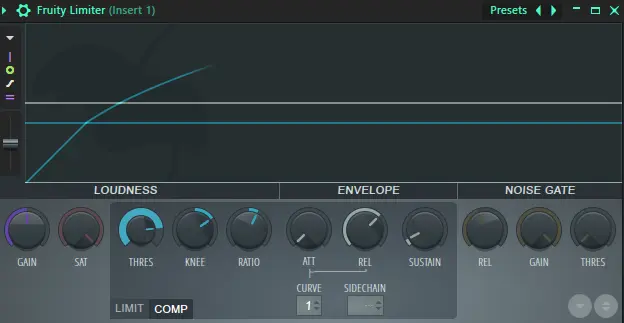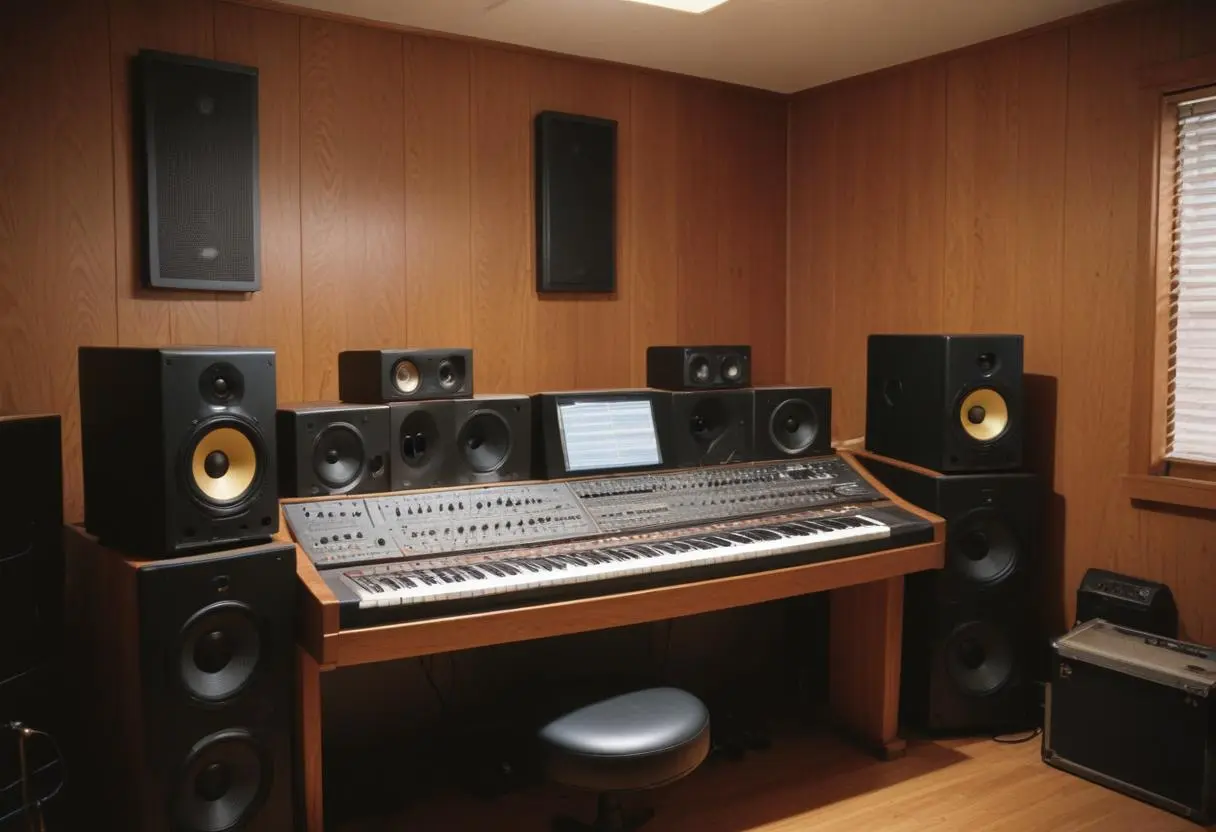
Table of Contents
Can AI replace human artists? Artificial intelligence in music
Can AI Replace Human Musicians? Introduction
Artificial intelligence in music (AI) is swiftly changing multiple industries, and the music sector is no different. The incorporation of AI into music production, songwriting, and live performance has opened the door to inventive practices and technologies that question conventional approaches. At present, musicians are using AI tools and applications to help with the creation, production, and even performance of music, indicating a change in how music is imagined and presented to listeners.
One significant breakthrough in this field is the creation of AI composition tools, such as Open AI’s Muse Net and AIVA, which can create original music across a variety of genres. These systems leverage large collections of existing music to understand patterns, structures, and stylistic details, enabling them to generate compositions that resemble human creativity. The pieces created by AI can serve as a useful resource for musicians in search of inspiration or those looking to venture into new musical territories.
Alongside composition, AI is increasingly being utilized in music production through tools that improve the mixing and mastering stages. Applications like LANDR use machine learning to assess and refine audio tracks, assisting producers in enhancing the ultimate sound quality with little human involvement. Additionally, AI-driven platforms can aid in songwriting by creating lyrics or melodic concepts—providing a collaborative experience that can enhance a musician’s skills.
While AI presents significant potential, there is a continuing discussion about its place in the music sector. Supporters claim that these technologies can facilitate creativity, whereas critics worry about authenticity, emotional depth, and the possibility of replacing human musicians. As AI advances and establishes its role in music, it’s crucial to thoughtfully assess its advantages and drawbacks, making sure that the final outcome enhances, rather than supplants, the human element in artistic expressions.
The Role of Creativity in Music AI and Creativity
Creativity is the foundation of music, setting it apart as a distinct form of human expression. Artists tap into their feelings, personal stories, and cultural heritage to create melodies and harmonies, weaving their experiences into the very essence of their work. This contrast between real-life experiences and artistic creation imbues the music with a level of richness and genuineness that is often missing in compositions generated solely by algorithms. The emotional depth that human musicians incorporate into their art is crucial in eliciting emotions, recalling memories, and building connections with their listeners.
Human creativity in music is more than just technical competence; it includes spontaneity, intuition, and the ability to innovate. Musicians frequently experiment with form, structure, and tone, promoting the continuous growth of musical genres. They respond to cultural transitions and societal challenges, allowing music to serve as a mirror for both individual and community experiences. This interaction of emotion and creativity prompts us to question whether artificial intelligence can truly reflect the intricacies of human experience.
While AI can analyze large datasets to create music, it follows established patterns and lacks the inherent emotional authenticity that comes from human experience. Human musicians’ originality extends beyond note selection to interpretations affected by prior traumas, accomplishments, and cultural interactions. AI-generated compositions may imitate specific styles or genres but fall short in their capacity to elicit strong emotional responses, confirming the claim that the depth of human creativity is unrivaled.
In the debate over whether AI can replace human artists, it is critical to remember that creativity—rooted in personal context and emotional depth—continues to be a defining element of music, structuring it as a form of art that reflects the intricacies of the human experience.
Case Studies: AI in Action/Future of musicianship
In recent years, the integration of artificial intelligence into music has yielded exciting results across a variety of case studies, demonstrating AI’s potential as both a composer and collaborator. One famous example is AIVA (Artificial Intelligence Virtual Artist), a computer designed to create emotive music. AIVA’s music has been included in films, video games, and advertisements, earning praise from both viewers and producers alike. Its compositions have aroused debate regarding the creative process and the role of technology in artistic expression, since AIVA tailors its compositions to elicit various feelings, demonstrating AI’s nuanced skills in music production.
Another fascinating example is OpenAI’s Jukedeck, which specializes in creating unique musical songs depending on user input. Jukedeck allows users to compose music by selecting characteristics such as pace, style, and instruments. Content makers have used the resultant AI-generated pieces, and they value the platform’s accessibility and ease of use. This highlights how AI may help anyone create music without formal expertise, democratizing the process.

Collaborations between human artists and AI have produced intriguing outcomes. A notable example is the collaboration between renowned artist Taryn Southern and AI program Amper Music. During this partnership, Southern created music tracks with Amper, which she subsequently integrated into her songs. This blend of human talent with AI technology produced a distinct sound, attracting attention from industry executives who recognise the possibilities of such collaborations. Critics and fans have had long discussions regarding the legitimacy of AI-generated music, raising issues about authorship and the creative process.
These case studies demonstrate the strengths and limits of AI in the music business. While AI-generated music may elicit emotion and inspire creativity, it also sparks complicated debates about creativity, ownership, and the nature of musical expression.
The Future of Musicianship: Coexistence or Replacement?
The rapid advancement of artificial intelligence poses intriguing questions regarding the future of musicianship. As AI systems continue to evolve, they are increasingly capable of composing, performing, and producing music that rivals human output. This raises a pivotal debate: will AI serve merely as a tool for human creativity, or will it ultimately replace human musicians altogether? To address this, it is essential to consider the multifaceted role of AI in the music industry and its implications for artists.
One viewpoint contends that AI will serve as a partner rather than a competition. Musicians may use AI’s analytical capabilities to explore new creative ideas, improve their works, and push their artistic boundaries. For example, AI can analyze massive volumes of musical data, allowing musicians to spot patterns, experiment with genres, and create new compositions. In this way, musicianship may evolve to meet the demands of a technologically integrated world, establishing a symbiotic partnership between human artists and AI tools.
Concerns about replacement emerge as AI grows more advanced. The capacity of AI to produce music independently raises concerns that it may lead to job displacement for musicians and composers. As algorithms grow more competent at producing popular and appealing music, concerns arise about the value of human talent. Can a machine genuinely capture the emotional depth and cultural tales found in human-created music? This ongoing discussion emphasizes the importance of ethical issues in AI research, notably regarding the ownership and originality of AI-generated products.
As these difficulties emerge, the evolving position of musicians in society may undergo a transition. In the future, musicians may need to reinvent themselves and adapt to an environment in which music creation is a collaborative effort between human ingenuity and technical invention. Finally, whether AI will replace or coexist with human artists is questionable. It promotes further investigation and encourages music professionals and amateurs to engage in critical dialogue about the future interaction of creativity and technology.
Check out this blog related to this blog
Check our featured blog
How to Use Vocal Compressor?



Leave a Reply